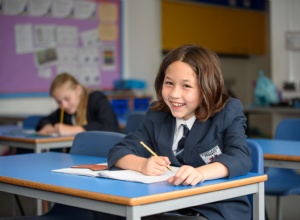Developing Writing

Developing Writing Across Our Primary Schools
One of the more recent key developments in our primary schools has been the significant and sustained improvements in pupil outcomes in writing. At the end of the last academic year, 97% of our Year Six pupils at South Borough Primary School were working at, or above, the Expected Standard, and across five of our other primaries, outcomes ranged from 80%-90% of pupils achieving the same.
These achievements have been largely brought about via the introduction and gradual roll-out of a considered and consistent method of delivering the writing elements of the English curriculum. At the heart of our approach lies our teachers’ determination to ensure that our pupils develop a deepened understanding of individual ‘text-types’ and are carefully introduced to contextual features. They are given the time to experiment with and refine their application, before being expected to produce extended pieces of writing. Extended sequences of learning are planned, ensuring that all pupils are provided with numerous opportunities to collaborate with peers in practising the skills of language application, and also allowing the progression within individual lessons from children becoming able to identify new concepts and devices, to becoming enabled to interpret their use and then employ them in their own writing.
We also place great emphasis on the development of pupils’ vocabularies and build time into every sequence of learning for children to seek out new words and to spend time, working with their classmates and adults, in getting to grips with how to correctly use them. We believe that by placing this value on language, we are not only allowing children to become better writers, but also enhancing their social interactions by providing them with the tools to better and more fully express themselves. (communicate)
Our teachers have embraced this approach, and many have played important roles in further developing and improving our strategies. Many have also benefitted from a reduction in workload due to a revised approach to giving pupils feedback, with far more emphasis on classroom dialogue than written ‘marking’, as well as much cross-school collaboration in the sharing of ideas, expertise and teaching resources.
We are proud of our pupils’ achievements in this area so far but continue to work to identify new ways of ensuring that an even greater proportion of pupils’ meet and exceed expected standards.
